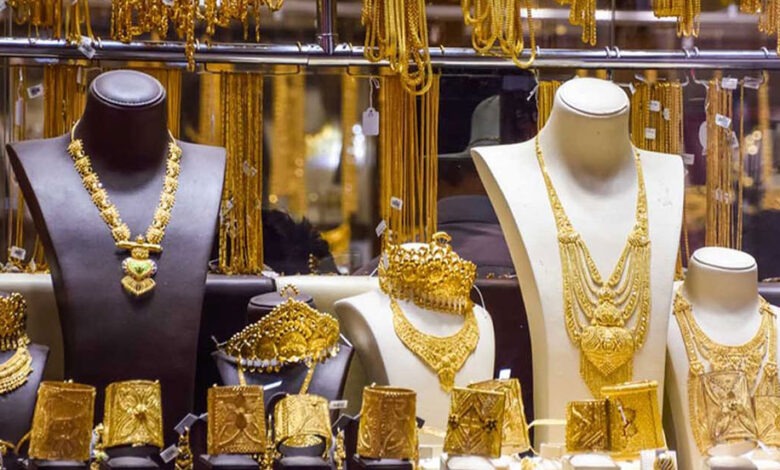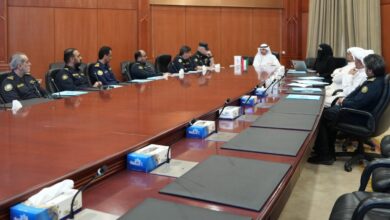MoCI guidelines aim to thwart illegal activities in precious metals trade
The report guides professionals in complying with laws, warning that criminals exploit the sector for money laundering, moving and integrating illicit funds via weak oversight and complex supply chains.

The Ministry of Commerce and Industry’s (MoCI) Anti-Money Laundering and Counter-Terrorism Financing Guide for the Gold and Precious Metals Trading Sector 2025, aims to help professionals understand and comply with relevant laws and guidelines on trade in these commodities. The guide highlights that criminals often exploit the sector to store, move, and integrate illicit funds within legitimate frameworks, taking advantage of weak oversight, informal practices, and complex global supply chains.
The guide stresses that the high value and liquidity of precious metals and gemstones make them particularly attractive for concealing and transferring illicit funds, reinforcing the need for stringent compliance and monitoring measures in the sector.
The Financial Action Task Force (FATF), the global money laundering and terrorist financing watchdog, has recently identified the precious metals and gemstones trading sector as high-risk for money laundering, terrorist financing, and other threats to the global financial system. The sector’s appeal to illegal actors stems from the high value of its products, their ease of transport, and their convertibility into cash.
According to FATF’s National Risk Assessment of Kuwait, the precious metals and gemstones trading sector is classified as medium to high risk. Although cash transactions exceeding KD3,000 have been prohibited in Kuwait since 2016, the legal framework was further strengthened only in 2025 with a comprehensive ban on all cash transactions in this sector, regardless of value.
The new guide stresses that although the prohibition on cash transactions has significantly reduced cash-related risks, professionals in the sector need to remain vigilant and comply fully by refusing any transaction involving cash, irrespective of its amount. This full prohibition should be incorporated into the sector’s internal controls and procedures said th.
The guide outlines Anti-Money Laundering / Countering the Financing of Terrorism (AML/CFT) controls, covering payment and transaction risks, such as unconventional or large cash payments, advance payments from unrelated third parties, and funds routed through high-risk sectors like real estate, automotive, construction, or tourism.
Dealers are required to evaluate inherent risks—those naturally present in their activities—before implementing internal controls. This includes assessing risks associated with products, services, customers, transactions, delivery channels, and geographical exposure to ensure effective risk management.
Customer due diligence (CDD) must be carried out before establishing any business relationship or conducting occasional transactions worth KD3,000 or more. This includes verifying the identity of the customer and beneficial owner, understanding the business relationship, and confirming the source of funds and wealth, particularly for high-value transactions. If CDD cannot be completed, the transaction must not proceed, and a suspicious transaction report (STR) should be considered.
The guide also highlights the need to appoint a compliance officer, establish approved internal policies, and comply with targeted financial sanctions. Sector employees bear significant responsibility in detecting and reporting suspicious transactions, ensuring vigilant implementation of CDD, verification of funds, and assessment of unusual transaction patterns. STRs must be promptly submitted to Kuwait’s Financial Investigation Unit, maintaining strict confidentiality.
The guide outlines product and risk services in the sector. These include:
- High-value, easily transportable products such as gold bullion or polished diamonds, which can be easily moved and concealed.
- Gold, in particular, is a concern due to its global liquidity, uniform pricing, and use as an alternative currency. Scrap gold, gold dust, or riverine gold is often produced informally and poses high risks because of the difficulty in assessing and monitoring it.
- Counterfeit or stolen goods, including synthetic diamonds marketed as natural or gold with falsified purity.
Used jewelry sold in bulk, which can be difficult to trace, especially when transacted through pawn shops or informal dealers. - Metal accounts, where metals such as gold are stored and traded similarly to cash or banking services, may be less risky when conducted in controlled environments. However, there remains potential for misuse, and these risks must be assessed on a case-by-case basis.












